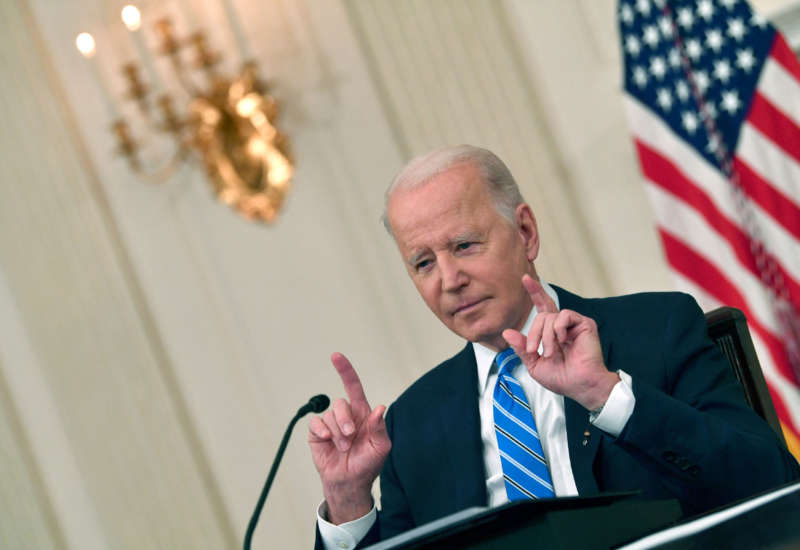Polling over the past several months has shown that President Joe Biden’s approval rating has dropped significantly since he first entered office — but at least for the time being, he is still polling ahead of all potential Republican challengers in the 2024 race.
A Politico/Morning Consult poll conducted from January 22-23 shows Biden losing a hypothetical election matchup against an unnamed “eventual Republican nominee.” Thirty-seven percent of respondents said that they would support Biden, while 46 percent said they would back an unnamed Republican challenger.
But the numbers reverse when the poll presents a hypothetical race between Biden and potential Republican candidates.
Biden defeats Sen. Ted Cruz (R-Texas) in a hypothetical race, 45 percent to 39 percent, respectively. He also edges out Gov. Ron DeSantis (R-Florida), with 44 percent of respondents preferring the president and 39 percent backing the Florida governor.
The poll shows a closer race against former Vice President Mike Pence, with the president ahead by only two points. Biden only leads former President Donald Trump, who he defeated in the 2020 presidential election, by one point.
Other polls show wider margins for Biden, however. In a Marquette University Law School poll published this week, Biden leads DeSantis by eight points, and is ahead of Trump by 10 points.
Both polls show that Biden’s approval rating is in negative territory. The Politico/Morning Consult poll puts Biden at just 42 percent approval among respondents, with 56 percent disapproval. In the Marquette poll, just 46 percent approve while 53 percent disapprove.
According to the Politico/Morning Consult poll, 1 in 5 Biden voters disapprove of Biden’s job performance. This is significant because it suggests that Biden’s low approval rating may not be the result of his policy initiatives, but rather his failure to fulfill the campaign promises that led people to support him in the first place.
Trump had dismal approval ratings while he was president, with average polling numbers that never exceeded 50 percent. However, he could always count on 90 percent (or more) of his base to support him. That meant the only way for Trump to secure higher polling numbers was to gain the support of liberal, progressive or independent voters — a nearly impossible task.
But for Biden, it’s a different story. Although his current approval rating is similar to the rating that Trump had at the same point in his presidency, he can increase his numbers — at least somewhat — by appealing to independents and the people that voted for him in 2020. In other words, Biden can raise his approval rating without having to placate right-wing voters.
Voters overall are still largely in favor of legislation and policies that the Biden administration is pushing for, including the Build Back Better social spending package, which has polled at 60 percent or higher in Data for Progress surveys since the start of November. There’s also high support for at least some student loan forgiveness, which Biden also campaigned on but has so far refused to deliver, with 62 percent of Americans voicing support for student debt relief in December. Passing voting rights legislation is also a highly popular initiative.
Lower approval numbers can often move incumbent lawmakers to believe they need to take a more moderate path. But the fact that 1 in 5 people who voted for Biden in 2020 disapprove of his job performance indicates that a more progressive approach (and actually passing his policy initiatives into law) might serve Biden well if he intends to run for reelection in 2024.


